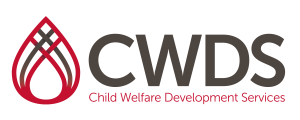CWDS Curriculum
Interviewing Persons Suspected of Child Maltreatment
Level: Advanced Practice—Lineworker
Credits: 6
Intended Audience: New and current child welfare personnel who want to enhance their skills in interviewing alleged perpetrators
Intended Objectives:
- To teach the preparation for an investigative interview in child maltreatment assessments/investigations
- To teach the difference between a traditional “helping” interview and a fact-finding interview with a person who may have a reason to mislead
- To teach the stages of a complete investigative interview
- To identify the concepts involved in assessing information provided by individuals believed to have committed child maltreatment or who have knowledge of child maltreatment
Topics Include:
- What is an “investigative interview”
- Why conduct “investigative interviews”
- Dynamics of child abuse and neglect
- Finklehor’s Four Pre-Conditions
- Child molester typologies
- Stages of assault
- Types of neglect
- Pre-interview considerations
- Stages of the successful investigative interview
- Validating the statement
CalSWEC Competencies Addressed:
2.17 Student can develop relationships, obtain information, and communicate in a culturally sensitive way
2.2 Student is able to assess the interaction of individual, family, and environmental factors which contribute to abuse, neglect, and sexual abuse, and identifies strengths, which will protect the child
2.3 Student gathers, evaluates, and presents pertinent information from informants, case records and other collateral sources to support or refute an abuse or neglect allegation
3.2 Student conducts effective casework interviews
Posted In:Engagement & Interviewing



